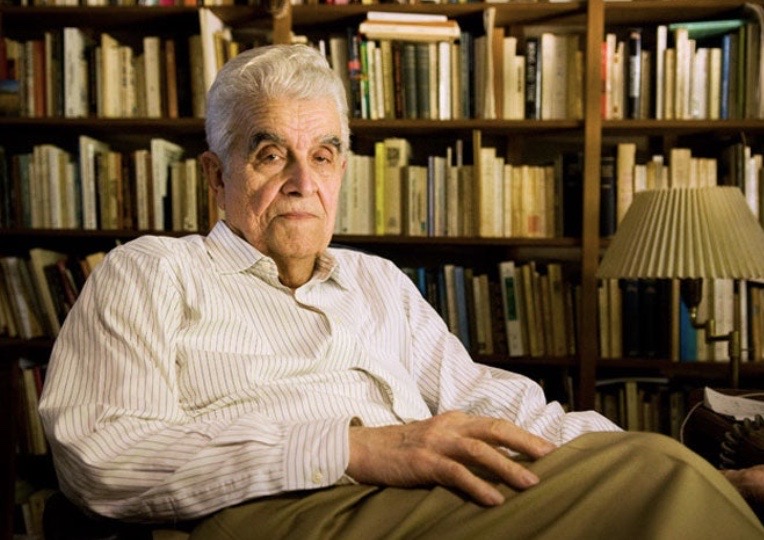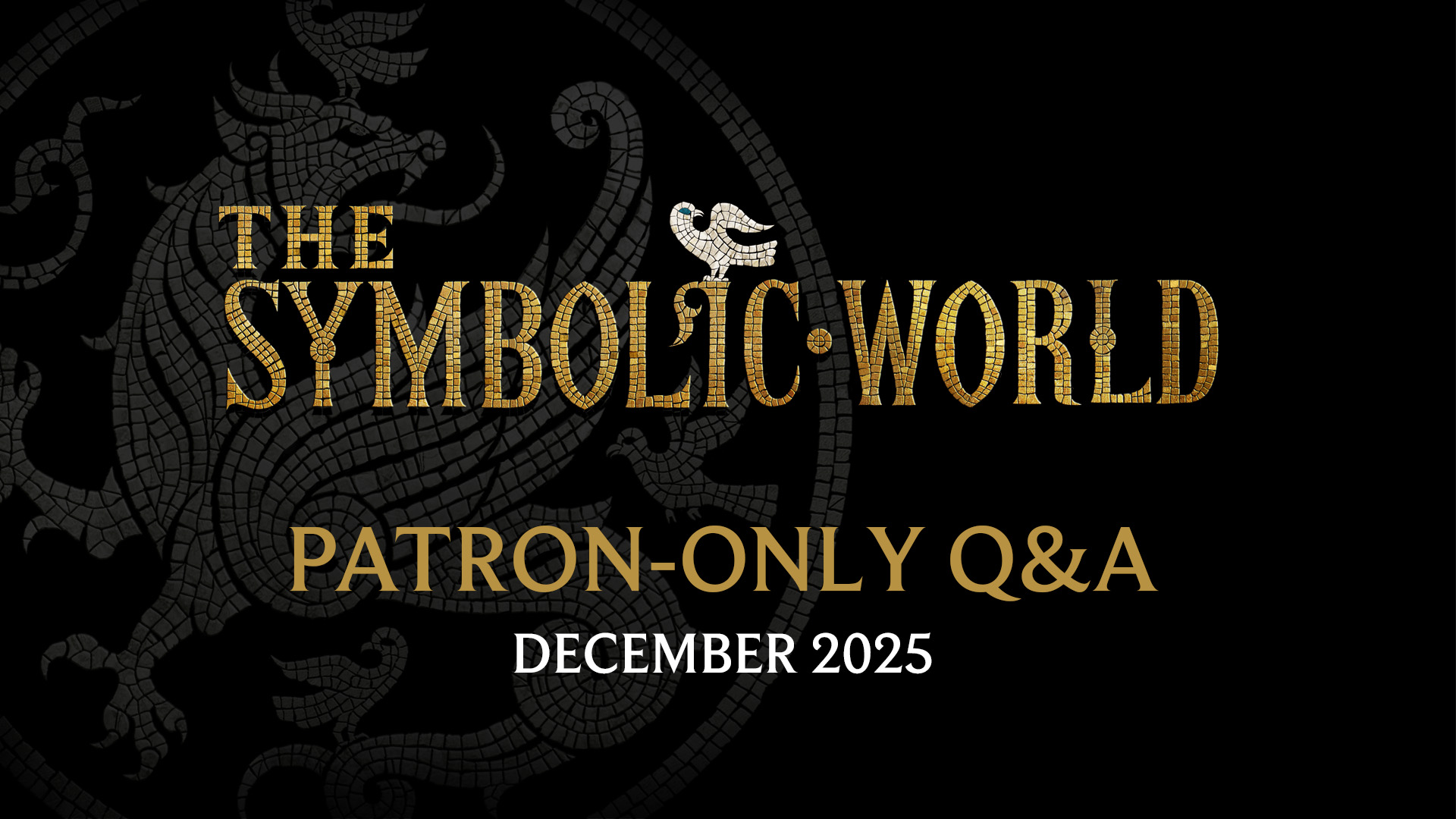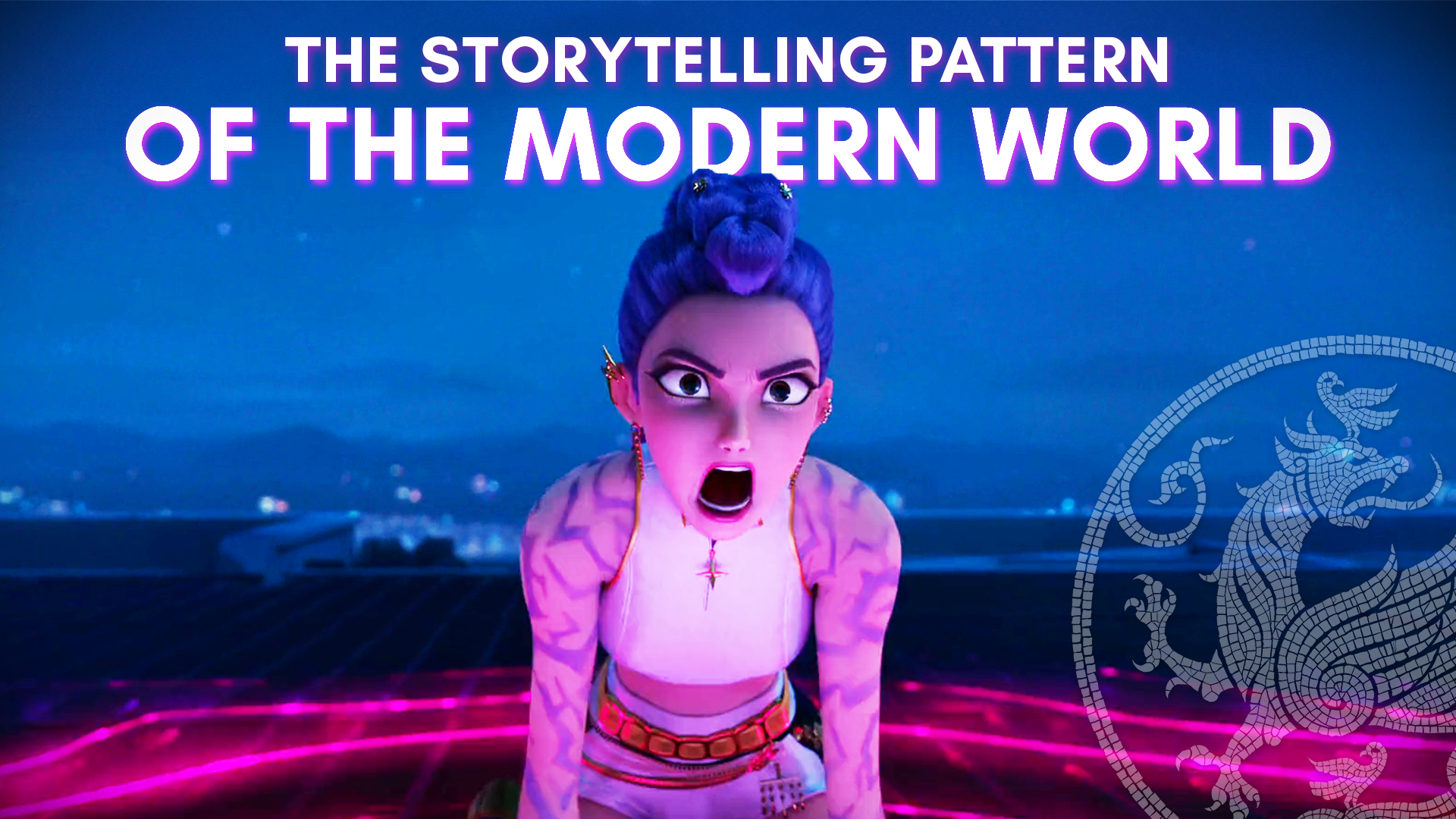Near my home lies a fairy forest. It started in the winter of 2020 and has gradually grown through the spring of 2021. At first blush, this folk project may seem a strange phenomenon, but its existence shows not only a longing for, but the inevitable return of reenchantment as the solidity of modernity wanes. We tire of the limits of our creation, wired with a need and desire to be in a shared, transcendent space beyond our ability to predetermine or manufacture. The existence and growth of this fairy forest, of these altars, speaks to this reenchantment and the inevitability of worship.1
It’s a fallacy that the material world could satisfy our deepest longings. As all boats seem to be lifted globally, rates of general happiness in countries that others most aspire to be like are dropping. 2 There is something missing in our ways of finding meaning and belonging in life. The surprising popularity of Jordan Peterson’s biblical lectures in the most secular time in the history of the West is but one glaring example that we are a spiritually starved culture. 3 Here is proof that just because modern people lack a rational explanation for their longing for an enchanted world, a world imbued with meaning, doesn’t mean it’s not there. Despite the precision of modern science, there remain aspects of ourselves that are little understood or that can only be hinted at sideways. Science can describe matter, but cannot describe what matters. 4 The poorly understood study of consciousness speaks to the limits of the reduction of life to scientific metrics. And we could also mention our poor understanding of the relationship between meaning and motivation in people’s lives. 5 But in our efforts to better understand ourselves and control the world around us, it made sense to reduce everything to “the law of the instrument.” 6 To squeeze the variable of soul out of the equation of Being.

It was a fair gamble, as honing the powers of the material world yielded incredibly powerful scientific and technological results. For a time, it seemed that we could enchant the world, that we “could be like God but without God.” 7 Indeed, Nietzsche’s death pronouncement of God was near proof of its success. 8 Equally, the prevalence of this “culture of self-invention,” to borrow Bishop Barron’s term, bespeaks a similar near-victory of Sartre’s “existence precedes essence” — that we, and our meaning found in life, are self-created. 9 Our essence, though, keeps snapping us back to reality, highlighting the inadequacy of a material existence in meeting fundamental spiritual needs; and people starved of meaning will find alternatives where they can — distracted by Nietzsche’s red herring pronouncement. Where once we knew our ultimate concern as belief and devotion to God, His supposed death shattered this ready-made hierarchy of values, leaving us not so much able to create our own as Nietzsche suggests we must do, but rather wandering aimlessly, bereft with no direction or purpose. 10 Consequently, convinced of God’s death, we turned our backs to Him and began searching for our “ultimate concern” elsewhere; off headlong into that outer darkness, to the fringe of creation, looking for something easier to worship.

The farther we fall away from mystery and the challenging demands of God’s worship, the more we grab hold of meaning in the immediate. Wealth, power, pleasure and honour are all low-hanging fruit of the passions. 11 The freedom of hedonism never felt so good. But the depth of effort required bespeaks an equal return on investment. Still seeking enchantment, we find consolation where we can, making idols of fairies. Similarly, think of the billions spent to create superhero movies and consider the popularity of cosplay at conventions, both characteristic of the depths to which people yearn to participate in a meaningful story. A sure sign that we are at the limits of this world of our own design. We have reached spiritual rock bottom with nowhere left to turn. Having crucified God, modern society screams out from its depths for something beyond itself. Having lost its way, it seeks more than it can see, something that transcends the limits of materialism. Being overall well-fed, clothed, sheltered, surrounded by technology that was just a pipe dream 20 or 30 years ago, people remain dissatisfied with their lives. We are living the reality of Dostoevsky’s prediction that even if we had it all, we would remain dissatisfied with a material utopia. 12 The recent renewed interest in the use of psychedelic drugs makes clear people’s desire to transcend material reality, even if only temporarily, even if only through material means. 13 Or, consider virtual reality as just another incarnation of this death rattle. Another failed effort to enchant the material world, to provide a three-dimensional space for our souls to live in, beyond our material lives lived between microscope slides.

While a reduction of the world to material elements makes for incredibly powerful and useful discoveries, it doesn’t provide a story you can live in. It doesn’t provide a focus or any point leading to anything but nihilism. Existence can’t define essence. The former can’t exist without the latter, as it can only be revealed through existence over time. This orientation not only admits enchantment and purpose, but a unifying story that can be shared. Navigating this space isn’t to choose material reality or the metaphysical, for we need both body and soul, the material and the spiritual, in order to be fully alive. Essence needs a body as much as our bodies need an essence. Another way to understand this is that we are made both of material and potential. We do not seek a static existence, but rather to become more than what we are. So this union isn’t then just a means to mend our material reality, but also a path to redeem our very selves: our Fall and our souls. Admitting a space beyond material reality allows the possibility of mystery and enchantment — of growth in an ever-changing and expanding world. Furthermore, admitting the greatest of these spaces, one ruled by God, affords limitless potential and space to grow. This view is pragmatic in its ability to develop beyond who you are. It’s an end to means.

For in the end, we know that this world of fairies isn’t a story in which we can live. It’s just a pastiche, a vain attempt to coalesce disparate fragments into a cohesive whole. It isn’t commensurate to our longing. It can’t contain us. It’s beauty strips to mask the scarred earth beyond the view from the car window. A thin spiritual gruel at best, that will nourish souls in kind. Let us not sell ourselves short in our worship, trying to shape it to us, but instead look higher and allow ourselves to be shaped by it. 14 Fix our gaze on the Most High and leave those lesser gods in their proper places, seeking instead the ultimate good, beautiful and true that takes us beyond the material limits of our own design — and the nihilism that comes part and parcel with it. With God, essence once again precedes existence. So, with a nod to St. Paul, let us put away childish things — a naïve vision of Our Lord and a denial of our spiritual needs — clothing ourselves instead in a more complete vision. May we seek to imitate Christ in the fullness of his glory, and nourish our God-starved spirits — the essence of our bodily existence.
Linked Articles & Posts
Linked Premium Articles & Posts
- Wallace, David Foster. “This is Water,” fs, no date.
- Tupy, Marian L. “The Most Important Graph in the World,” Human Progress, December, 2016. Elliot, Josh K. “Canada drops out of top 10 in World Happiness Report,” Global News, March, 2021.
- For example, his Biblical Series I: Introduction to the Idea of God has over 8.5 million views. No name. “In U.S., Decline of Christianity Continues at Rapid Pace,” Pew Research Center, October, 2019
- Barron, Bishop Robert. “Bishop Barron on Scientism and God’s Existence,” at 0:50. YouTube, October, 2012.
- Peterson, Jordan B. “Jordan Peterson: Understanding the Mystery of Consciousness,” at 1:09. YouTube, May, 2020.
- Maslow, Abraham. “Law of the instrument,” Wikipedia, no date.
- No name. The Catechism of the Catholic Church, 308. scborromeo, no date.
- Nietzsche, Friedrich. “God is dead,” Wikipedia, no date.
- Barron, Bishop Robert. “Breaking Out of the Prison of Self-Invention,” Word on Fire, June, 2021. Sartre, Jean-Paul. “Existence precedes essence,” Wikipedia, no date.
- Williams, Vincent. “Paul Tillich on the Nature of Faith,” Curating Theology, July, 2019.
- Barron, Bishop Robert. “Your Life Does Not Belong to You,” Word on Fire, September 2015.
- Dostoevsky, Fyodor. “and indeed this is the odd thing that is continually,” Goodreads, no date.
- See Joe Rogan, the most popular podcaster in the world, and his advocating the benefits of their use. Sandwich, Reality. “Joe Rogan: Dedemonizing Psychedelics,” Benzinga, March, 2021.
- De Young, Fr. Stephen. “Apocalypse Now and Then,” at -25:20. The Lord of Spirits, July, 2021.
MEMBERSHIP
Join our Symbolic World community today and enjoy free access to community forums, premium content, and exclusive offers.



.svg)



.svg.png)






Comments